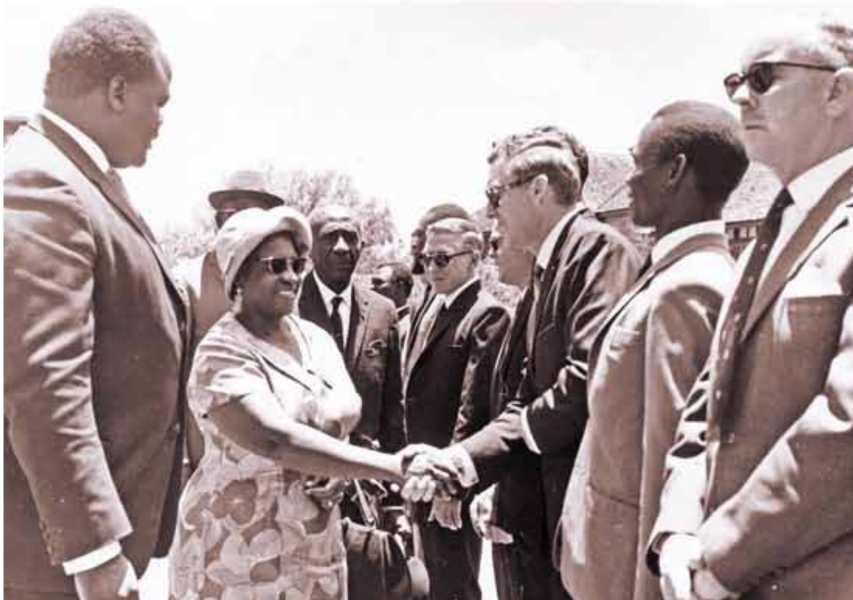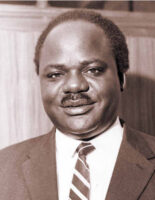
Like his nickname, ‘Kaliech’ (Dholuo for like an elephant), Dr William Odongo Omamo’s contribution to Kenya’s political landscape was gigantic. He was one of the most polished and eloquent politicians Kenya has ever had. A man with the gift of the gab and a great sense of humour, he could speak for hours and not bore his audience. Once, on a campaign trail, he was hard pressed by his constituents to point out what he had done for them. In reply, Omamo left his audience in stitches.
Omamo had two wives, Joyce Acholla and Anne Audia, and 16 children. One of the most prominent is Raychelle, a former Law Society of Kenya chairperson who also served as Kenya’s Ambassador to France.
Omamo was a large-scale farmer in Bondo and Muhoroni and served as the Chancellor of the Great Lakes University in Kisumu. At independence he became the first African principal of Egerton College, which has since become a university. He joined politics in 1969 and successfully vied for the Bondo seat. It was previously Jaramogi Odinga’s, but he was detained just before the elections.
Omamo was born on February 27, 1928, in Bondo in a family of eight children, two boys and six girls. His father married eight other women and had scores of children.
He went to Maranda Sector School, five kilometres from his home, in 1936. He once talked about his first day in school: “I was half naked, with only a goat skin strip to cover the private parts and buttocks.”
The next day, his parents arranged to get him better clothes in line with the strict school rules enforced by the colonial administrators.
From the first day, his teachers and classmates saw a leader in him because of his oratory and ability to grasp fast what was taught. He stood out “like a cockerel among chickens”. His classmates described him as a bright student, whose hobbies were hunting and planting trees and flowers.
Unlike his schoolmates who dropped out of school or repeated classes for lack of fees or poor academic performance, Omamo’s school days were a bed of roses. When he sat the national examinations, he passed with flying colours. Later, he joined Maseno School for secondary education. It was at Maseno that he fell in love with agriculture as a subject.
In 1951, Omamo got a scholarship for further studies in India. That was when he met Odinga, one of the panelists who vetted Kenyan students for the Indian Government’s scholarships. He remembered the time thus: “I was one of the few Kenyans who benefited from an Indian scholarship. I went to the Punjab Agriculture College for two years, and then moved to Madras Agricultural College, where I graduated with a Bachelors of Science degree in agriculture in 1955.”
The only Kenyan he recalls meeting during his undergraduate days in India was Titus Mbathi, who was at the neighbouring Madras Christian College. Mbathi was later to rise in the Public Service, join politics and become a Cabinet Minister. Today, Mbathi is the chairman of the Kenya Generating Company (Kengen).
On his return to Kenya, Omamo was hired as an assistant agricultural officer and posted as a lecturer to Siriba Teachers College in Western Province. But he resigned after two years — in 1957 — to join Lahore University in Pakistan for postgraduate studies in agricultural economics for two years.
